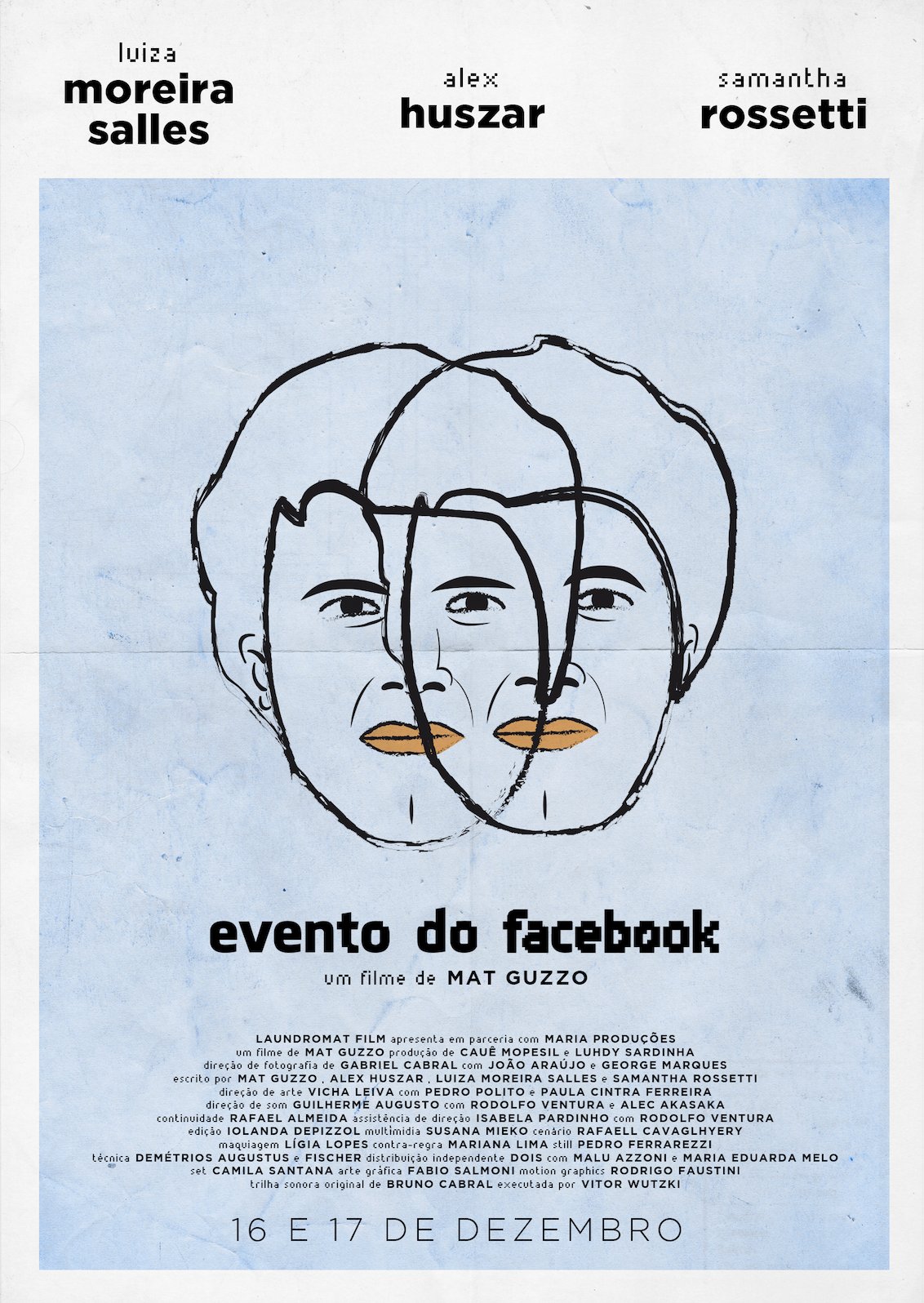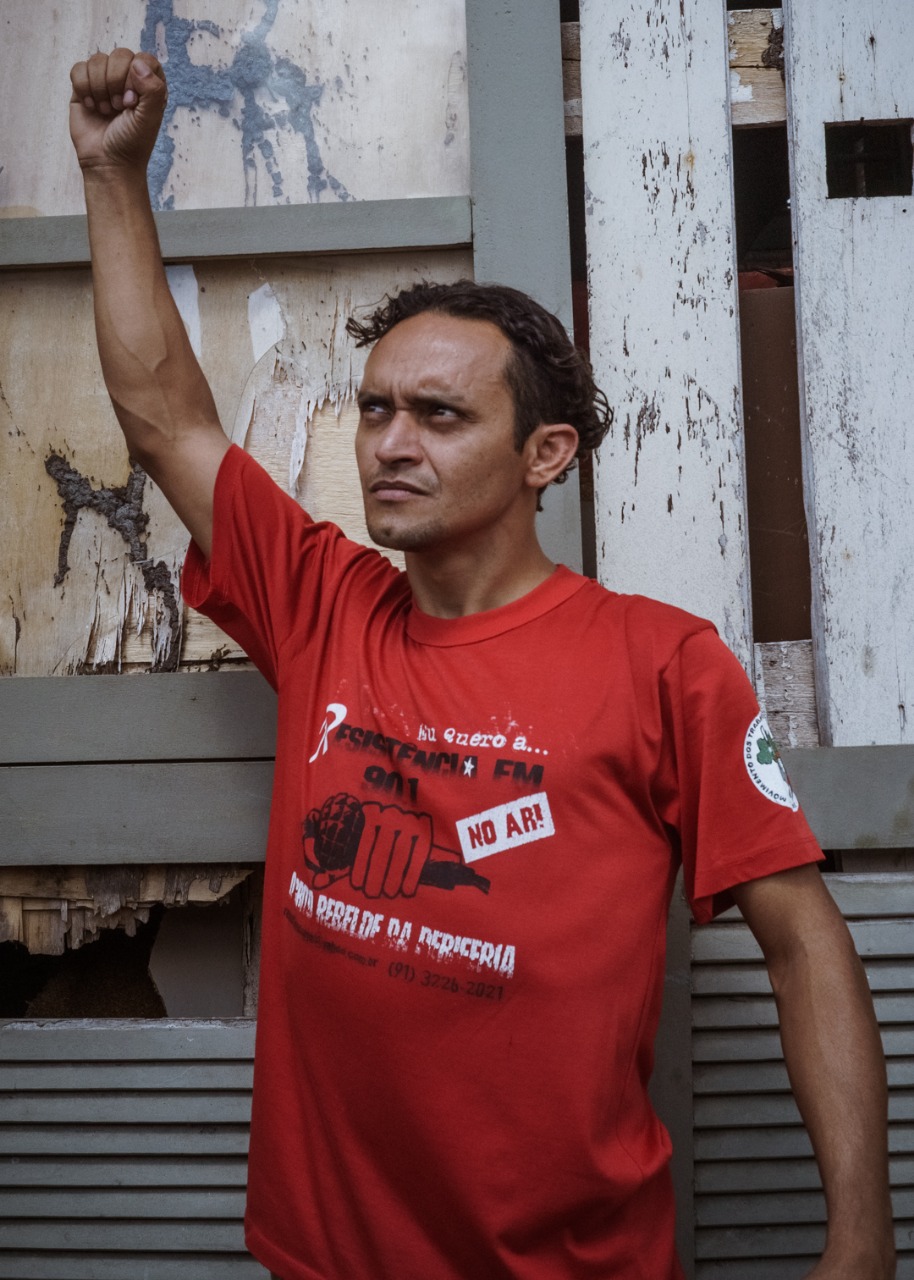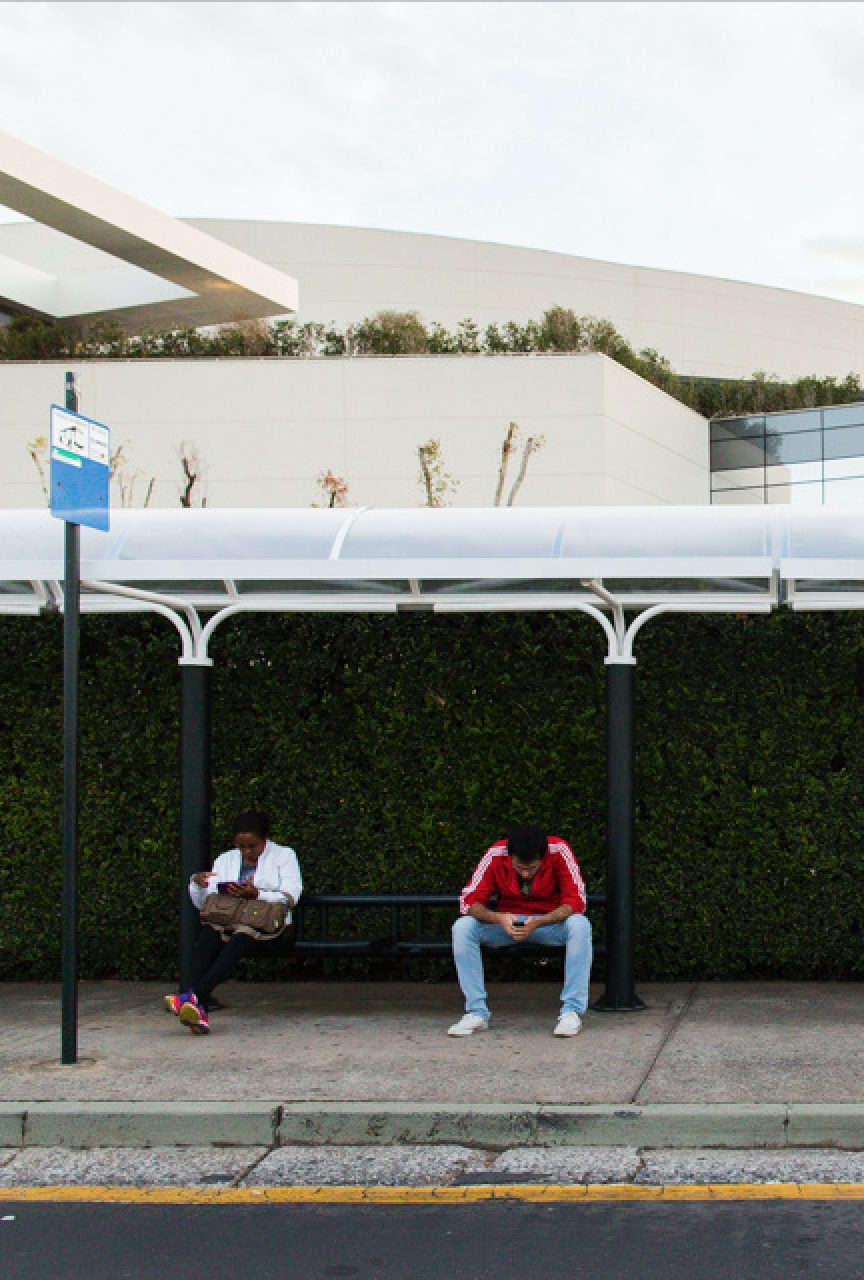PLATFORM PRODUCTION
metajornal
laces(d): latin-american centered speculative design
transmissão fordlandia
petit festival de janeiro
muto music videos
VISUAL MEDIA
third world manager
sugarloaf rendezvous
public concession
common places
evento do facebook
attached
silenced
o vídeo
TEXT & RESEARCH
prática da fotografia documental
photography methodology
metajornal
laces(d): latin-american centered speculative design
transmissão fordlandia
petit festival de janeiro
muto music videos
VISUAL MEDIA
third world manager
sugarloaf rendezvous
public concession
common places
evento do facebook
attached
silenced
o vídeo
TEXT & RESEARCH
prática da fotografia documental
photography methodology
RITUAL GEOGRAPHIES
CULTURAL INFRASTRUCTURES
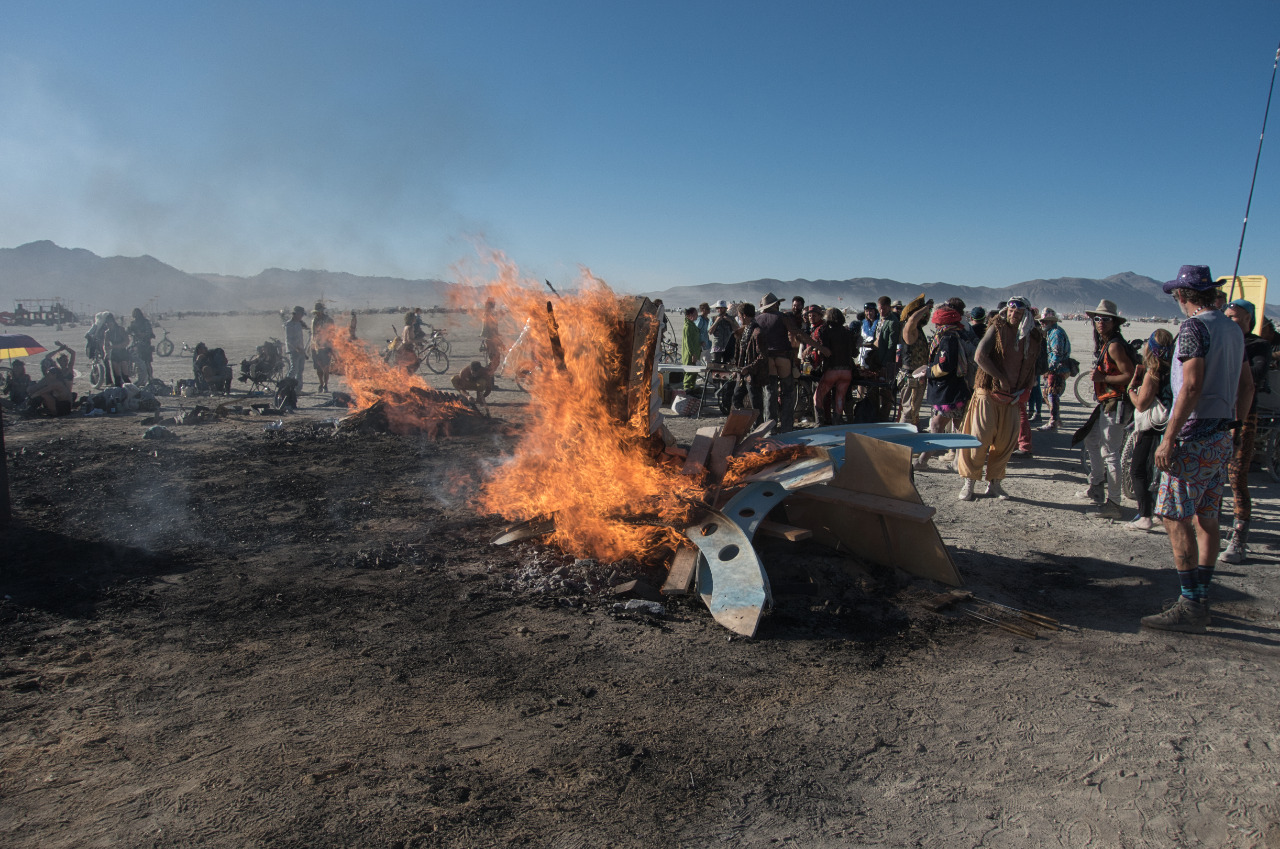
This research project seeks to analyze the current conditions of creative labour through the concept of cultural infrastructure. Focusing on ritual and space, the shifting character of creative labour and its integration with the knowledge based economy is evident in displays of art, making, and technology in international events—i.e. the Bay Area Maker Faire in San Mateo and the Burning Man Festival. We ask how practices and values expressed in these events—such as project-based artistic work and the fusion of social and professional interaction—help to shape the collaborative manufacturing processes driving the growth of technology firms. Together with Dorothy Howard, Verónica Uribe Del Águila, and Davide Carpano, we received the UCSD Chancellor Interdisciplinary Collaboratories Grant Award for this research project. Through it we had the opportunity to work with Dr. Lilly Irani, Dr. Matilde Cordoba Azcarate, Dr. Charles Thorpe and Ricardo Dominguez in researching the role of ritual and protocol in organization of creative labour.
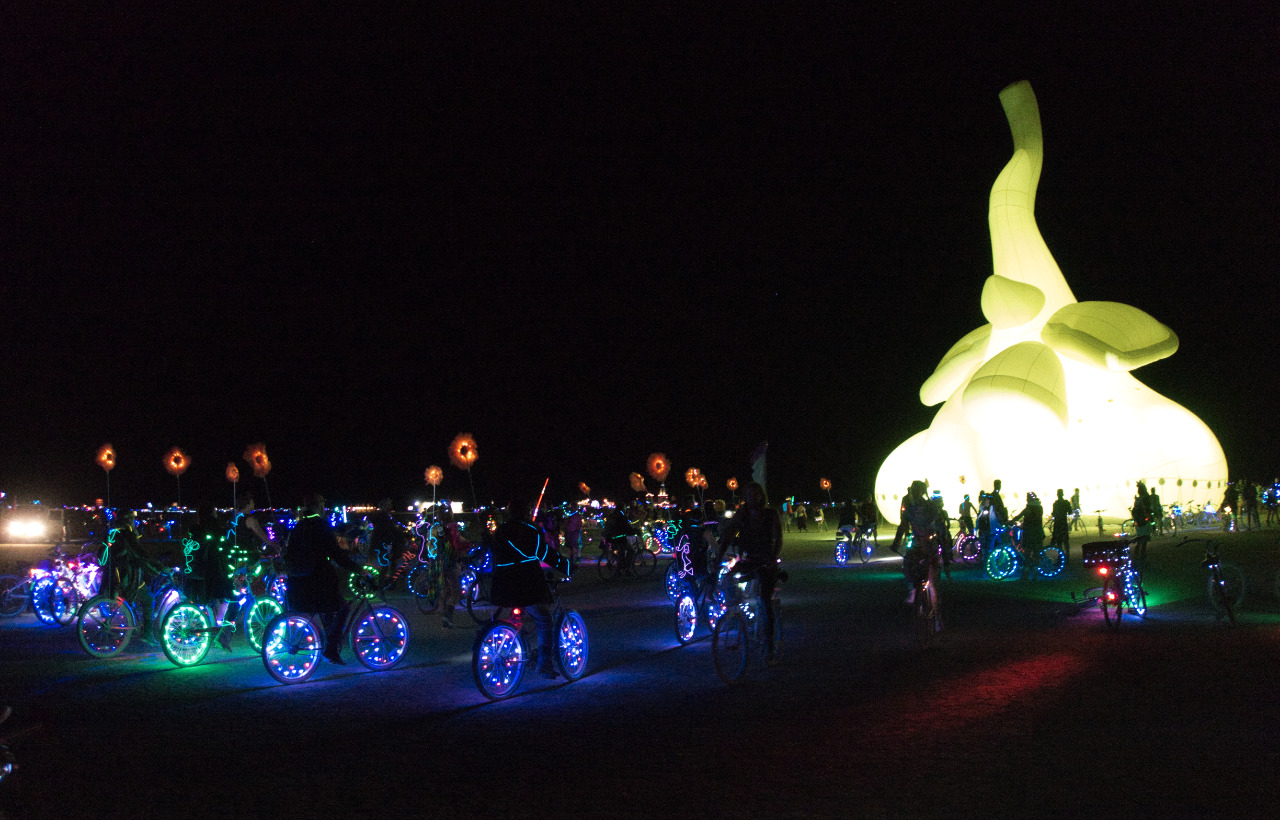
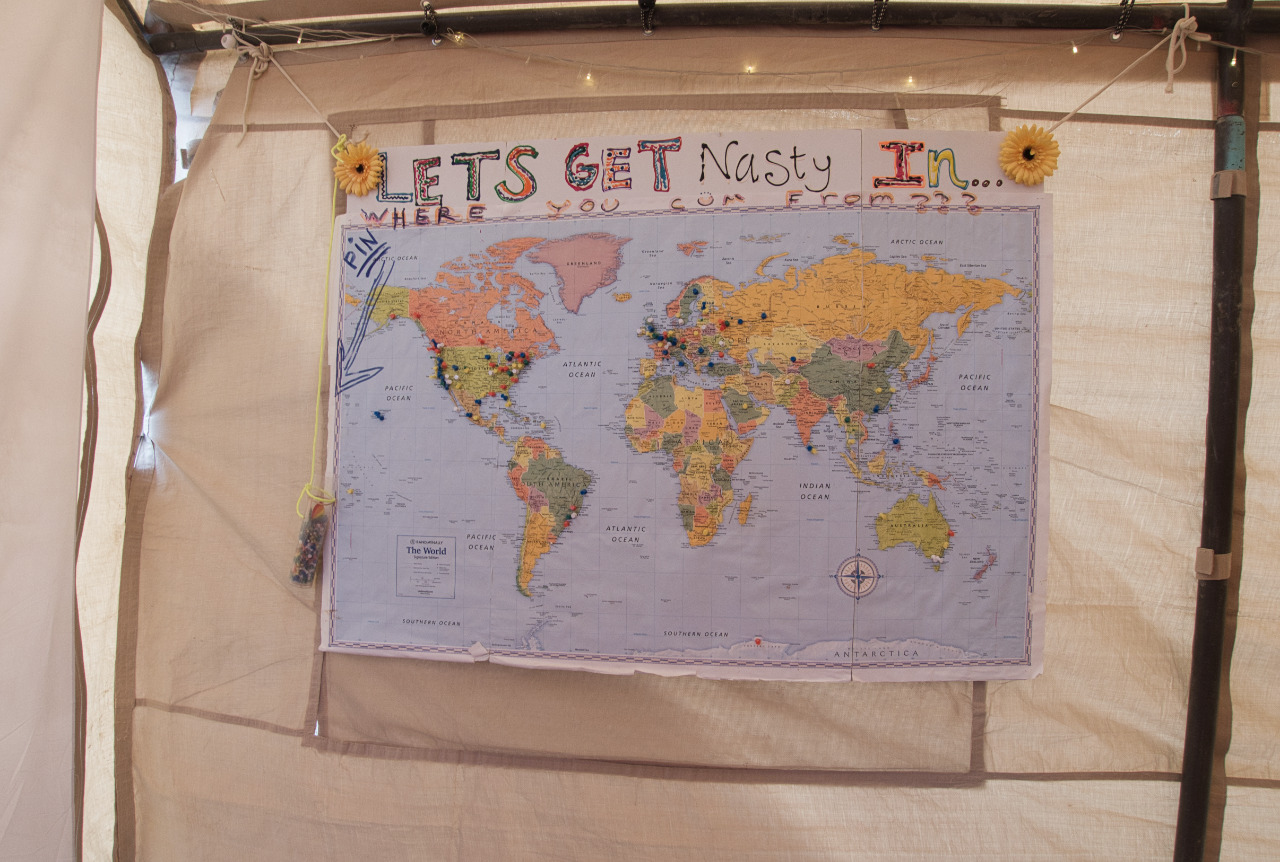
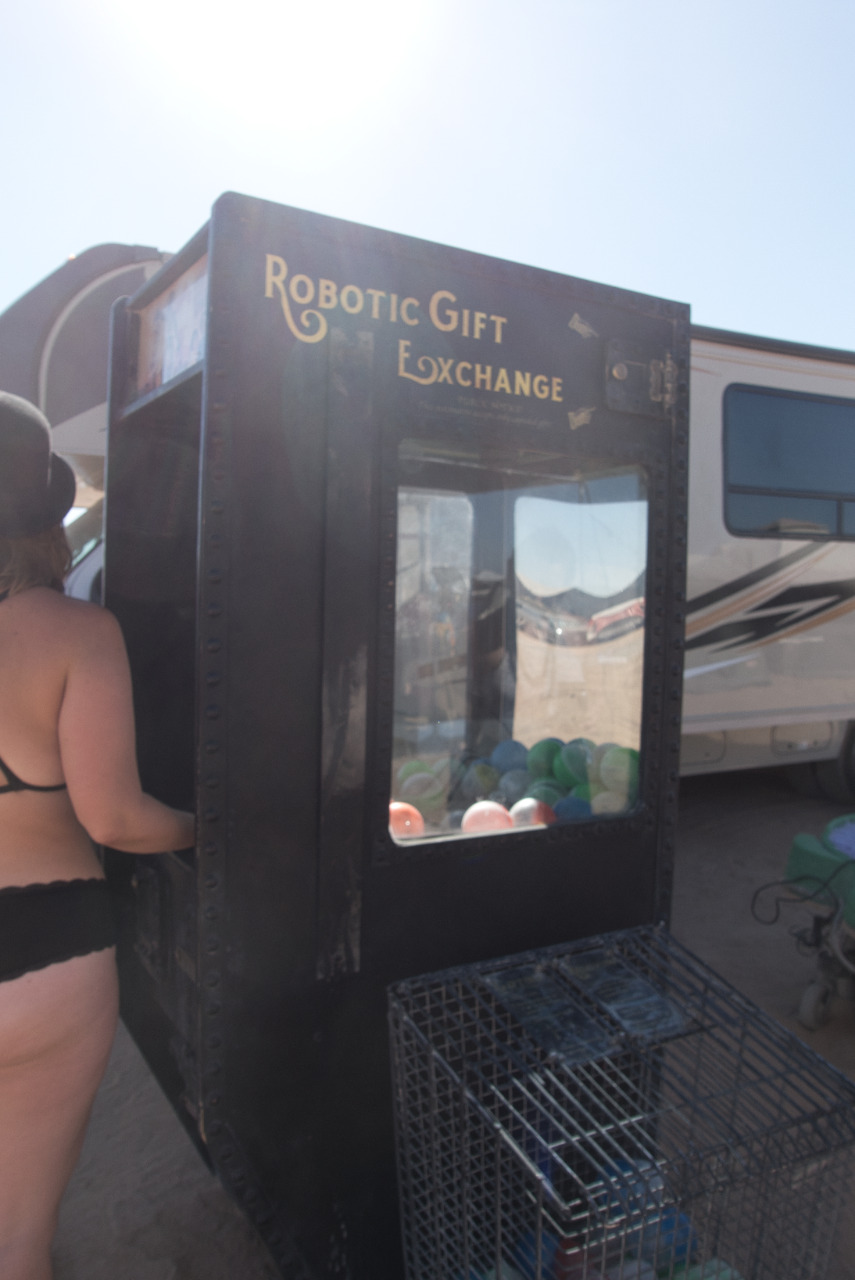
How do ritual events such as Burning Man and Maker Faires transform collective experiences of creative workers, negative and positive, into experiences and cultural products that fuel digital economies? We intend to explore this question by focusing on the cultural infrastructures of creative labour—a productive force outputting social, symbolic and informational capital. Understood as immaterial and affective, labour in the digital economy complicates the separation between work and leisure. This transformation is observable in physical and virtual space. It marks a codependence between the shifts in the nature and organization of paid and unpaid labour, and redesigns economies from mechanical repetitive production to knowledge and information-based. Creative labour assumes dynamics of play, as users latch onto idealized spaces of fruition and consensuality that instead create new enclosures and avenues for productivity.
This project converges on the social and political consequences of creative labor in the case of Maker Faires and Burning Man—infrastructures that create opportunities for enterprise and entrepreneurs. Situating these phenomena within history, this project contributes to the intellectual trajectories of graduate students and faculty across disciplinary and methodological areas of expertise.
Online colloquium to be announced in September!
METAJORNAL
METAJORNAL is a web-based speculative newsroom that considers how mass communication influences information circulation in contemporary cities. Designed as an online platform to aggregate and organize data from grassroots media organizations in Latin America, mainly Brazil, the news agregate aims at experimenting with algorithmic transparency, democratic centralism and gatekeeping theory to rethink the epistemic character of data visualisation applications and propose alternative long-term solutions for information distribution.
The platform seeks to act as a data Robin Hood, acquiring targeted data from large sources such as Facebook, Google and Reddit and reorganizing them into a digestible transparent news portal citing original links and sources. This has not only the intent of offering a counter informational source to the algorithmic landscape but also demonstrate an alternative to existing corporate platforms that might inspire a real long-term solution in the fields of communication, governance and public policy.
The platform seeks to act as a data Robin Hood, acquiring targeted data from large sources such as Facebook, Google and Reddit and reorganizing them into a digestible transparent news portal citing original links and sources. This has not only the intent of offering a counter informational source to the algorithmic landscape but also demonstrate an alternative to existing corporate platforms that might inspire a real long-term solution in the fields of communication, governance and public policy.
![]()
The optimism regarding the revolutionary potential in the circulation of information on the internet, particularly those done through social media platforms, has diminished considerably in the last 5 years. This comes from the increased awareness of three main observations departing from the discussions surrounding the internet:
- Increased concentration of power and wealth;
- Lesser public and/or transparent ownership of technology;
- Images are increasingly inserted into dubious contexts of interpretation.
The rigging of elections and public polls (e.g. Brexit in UK, Trump in US, Bolsonaro in Brazil) alongside the geopolitical and social challenges put by quasi-state private entities such as Amazon, Alibaba and Facebook, calls for a solution in equal systemic level that goes beyond the "states vs. markets" model, preserving individual democratic rights such as the freedom of speech while experimenting with values at odd to our times such as the notion of Democratic Centralism. Additionally, considering also planetary environmental and social emergency, the degradation of western democratic institutions and limitation of resources such as time, place and budget for constestational projects, this alternative should also account for new paradigms in process that can surface the contemporary challenges that we face today.
As a speculative platform for information circulation, the development of the project 'Public Audio' could be an active demonstration of how applied critical theory can address emerging technologies not to create an object of contemplation but to instigate knowledge creation. Moreover, the actual application of visual strategies in web-based coding (e.g. letters of a text in a screen starting to shake the more the algorithm is at work) can offer a critical reframing of the philosophy of technology as an ambivalent vehicle of societal development that should be disputed. Thus, the process of developing and programming Public Audio would focus in critically addressing the cultural politics of high-tech work practices while still proposing a lively debate of conceptual implications surrounding the news portal and its working parameters.
PETIT FESTIVAL DE JANEIRO
Petit Festival de Janeiro is a site specifc arts and music festival set in a high class
neighbourhood in Campinas, interior of São
Paulo. It is established by the brazilian law
the right to seize public spaces for cultural
manifestations, interventions and other activities of collective interest.
But the access to public space and the cultural infrastructure is conditioned by economic inequality and spatial segrega- tion. Most high class areas operate under a privatist logic of public space, where the open and free access infrastructure is seen as a possibility of getting in contact with the unknown other. Petit Festival de Janeiro presented independent music and visual arts, a result of a collaboration between 80 people from the city and abroad.
This gap between the inequality of access to culture creates a certain disturbance in the realization of an independent festival in a high class area. The project was approved by the secretary of culture but only discov- ered a few days before its realization by the the vice-mayor, which curiously lived near the square. The project contributed for a state against state wrist fight to see whereas the festival could happen or not.
But the access to public space and the cultural infrastructure is conditioned by economic inequality and spatial segrega- tion. Most high class areas operate under a privatist logic of public space, where the open and free access infrastructure is seen as a possibility of getting in contact with the unknown other. Petit Festival de Janeiro presented independent music and visual arts, a result of a collaboration between 80 people from the city and abroad.
This gap between the inequality of access to culture creates a certain disturbance in the realization of an independent festival in a high class area. The project was approved by the secretary of culture but only discov- ered a few days before its realization by the the vice-mayor, which curiously lived near the square. The project contributed for a state against state wrist fight to see whereas the festival could happen or not.

